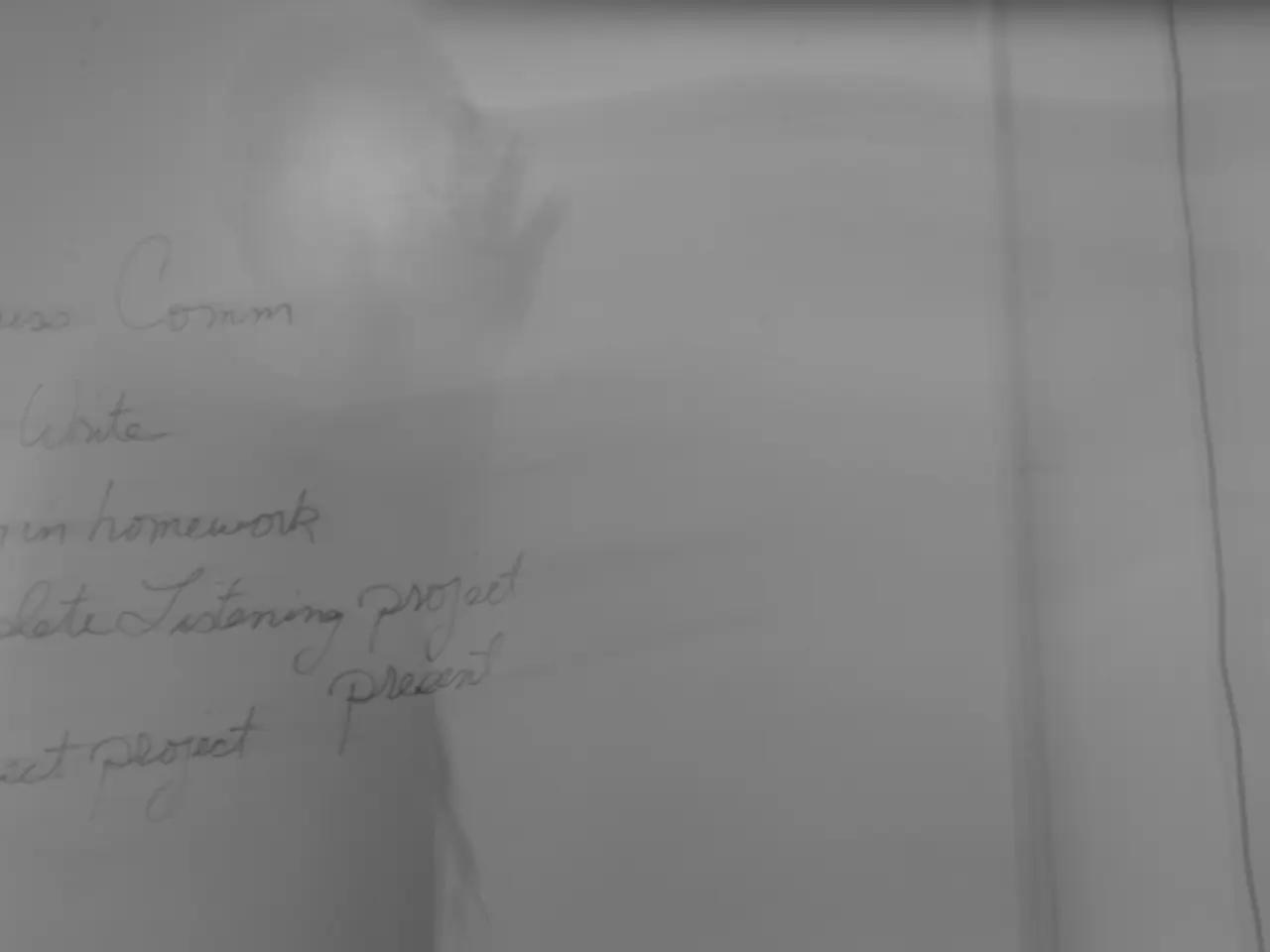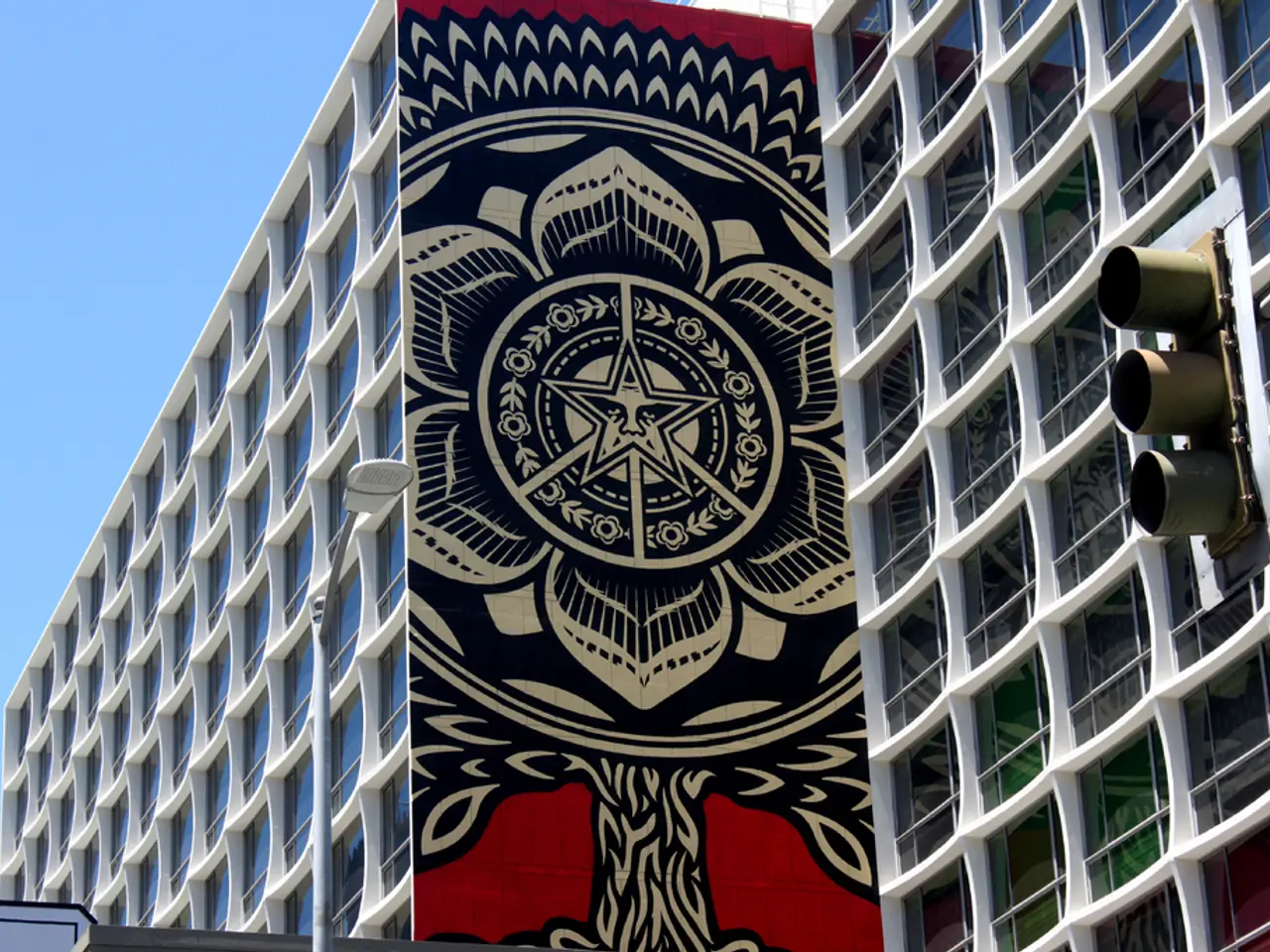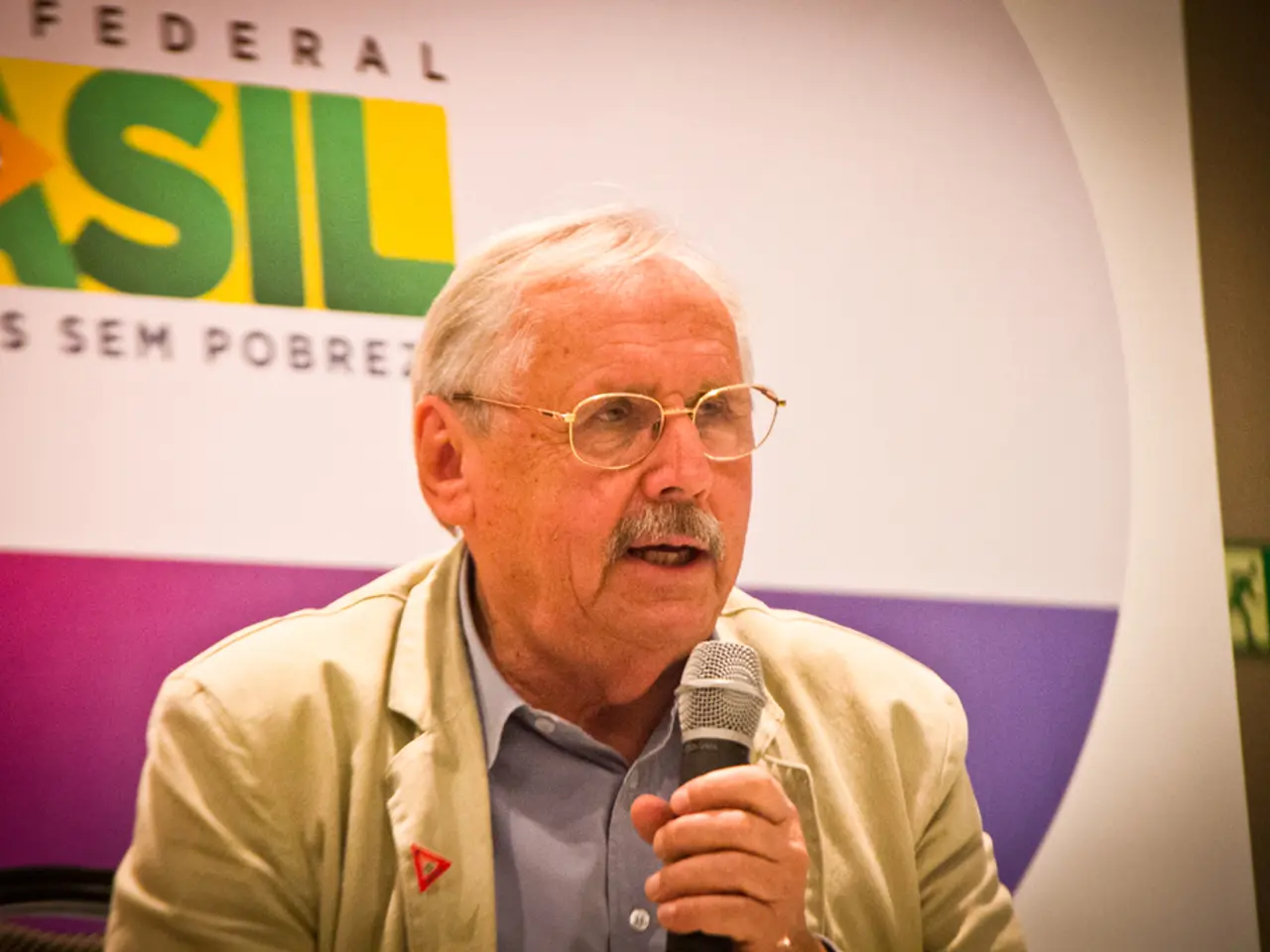Trump reportedly departed prematurely from the G7 summit, which has been attributed to tensions with Macron and Zelensky.
Stay updated with the latest developments here.
Trump's Hasty G7 Getaway
US President Trump bailed early from the G7 summit in Canada due to the whirlwind in the Middle East, but a deep dive by the Financial Times reveals another compelling reason behind his hasty exit. It turns out that Trump's decision to leave came after a spat with French President Macron, who had paid a call to Greenland on his journey to Canada and expressed disapproval of Trump's claims about seizing Greenland from Denmark[1][2]. The rift between the two leaders likely soured Trump's enthusiasm for a congenial summit.
Pyongyang to Moscow: Cue the Drone Throne
Pyongyang and Moscow could be deepening their military co-ordination, as rumors swirl that over 25,000 North Korean workers could join a Russian drone factory in their Alabuga special economic zone[1]. The workers are expected to boost production, while receiving training on operating drones in exchange. The factory is known for manufacturing Iranian-developed Shahed drones[1].
Spain's Pesky EU Defence Commitment Hangover
Spain has gone rogue, blocking NATO's ambitious plan to increase defence spending to five percent of GDP by 2032[1]. Prime Minister Pedro Sanchez argues that this commitment would be both inappropriate and counterproductive, since it contradicts the Spanish welfare state and their worldview[1]. Madrid's current military expenditure amounts to around 1.3 percent of its GDP, making it one of the biggest laggards in the alliance. However, the Spanish government insists that it only needs to capitalize 2.1 percent of its GDP to address its military needs[1].
Latvia's Land Grasp
Latvia plans to tap the brakes on Russian and Belarusian citizens interested in purchasing property within its borders. The necessity of this move is rooted in the ongoing hybrid war waged by Russia against Ukraine and the possibility of land acquisition as a means for indirect influence[1]. Riga has already put the skids on most Russian visa applications and residency permits, given the precarious state of their large Russian-speaking population[1].
North Korea Trumps Russians in Kursk Reconstruction
Moscow announced that thousands of soldiers from North Korea will aid in the reconstruction of the Russian region of Kursk[1]. This could denote a renewed alliance between the two nations, given that North Korean troops previously collaborated with Russian forces against Ukrainian units, eventually leading to their retreat[1].
Sanctions Galore: Kremlin Confronts Ukraine
The EU is on the cusp of imposing a 18th round of sanctions against Russia, focusing on the energy and banking sectors[1]. This move comes as a response to Russia's unyielding opposition to establish a ceasefire with Ukraine and their continued aggression.
Finland Turns a Blind Eye to Ottawa Convention
Finland is leaving the Ottawa Convention, prohibiting the use of anti-personnel mines, despite potential retaliation from critics. This decision is motivated by an increased threat from eastern neighbor Russia[1]. The withdrawal will take effect six months after Finland notifies the United Nations[1]. Important states such as the US, Russia, China, and India are not signatories of the Ottawa Convention, further highlighting its limitations[1].
Unleashing EU Funds: Freeze Thaw Part II
Nearly 200 billion euros of frozen Russian state funds located in Belgium could generate more yarn for Ukraine if they were redirected to a new investment fund[1][2]. This strategy could potentially yield higher interest rates to keep Ukraine's economy abreast in the face of US President Trump's impending financial aid cut threats[1][2]. However, these discussions are subject to debate amongst EU finance ministers at a scheduled informal dinner[1][2].
Denmark Navigates the EU Tide for Ukraine
When Denmark takes the helm of the EU presidency from July to December, it plans to speed up Ukraine's EU accession process[1]. Current Minister for Europe, Marie Bjerre, has promised to put maximum pressure on Hungary, which has previously obstructed a swift accession process[1]. Although the EU-27 has given Ukraine a general pledge for membership, the process could still span years[1].
Dnipropetrovsk: Fields of Tears and Ruins
A 59-year-old man lost his life after enduring injuries from a night of Russian drone and artillery attacks in Dnipropetrovsk, Ukraine[1]. Four others sustained injuries as well, including an 11-year-old boy[1]. Photos of the damaged buildings tell a tragic tale of the aftermath[1].
New Day, New Prisoners: Russia and Ukraine Lock Horns Again
Russia and Ukraine have completed another prisoner exchange, with Ukrainian President Zelenskyy declaring the return of his citizens from Russian captivity[1]. The exchanged individuals include severely ill and injured soldiers[1]. Although the exact number of prisoners swapped between the nations remains undisclosed, the Russian Ministry of Defense confirmed the event and shared photographs of elated soldiers waving Russian flags[1][2].
On Bended Knee: Russian Deserters Adopt the Legal Jail Climb Method to Avoid Service
Desperate times call for desperate measures in Russia as deserters decide to get themselves arrested in order to avoid being sent back to the war in Ukraine[1]. Fleeing the country is a formidable challenge, and those who attempt to flee often fall into the hands of law enforcement, potentially facing imprisonment or even execution[1].
A 100-Day Standoff: Ukraine Rejects Ceasefire After a US Proposal
Since Ukraine accepted the US proposal for an unconditional 30-day ceasefire in negotiations held in Jeddah on March 11th, "Russia continues to chose war"[1]. The proposal was denied by Russia, who proceeded with escalating their attacks on Ukrainian cities instead[1].
Finland Axes Demining: Skirts Ottawa Convention for Eastern Safety
Finland decides to ax the Ottawa Convention in response to an increased threat from Russia to the east[1]. The Convention, which prohibits the use, storage, production, and transfer of anti-personnel mines and their destruction, has been in effect since 1999[1]. The Finnish military deems the measures necessary for their national defense[1].
Rutte's Axe: NATO Defense Gets the Chop
NATO Secretary-General Mark Rutte is expected to instate budget cuts and departmental abolition as part of an overhaul[1]. Specifically, two departments - the Public Diplomacy Division and the Executive Management Division - will cease operations, with their tasks to be delegated to other departments[1]. These cuts represent a total overhaul of NATO operations and signify Rutte's commitment to streamlining and modernizing the NATO headquarters in Brussels[1].
Argentine Propaganda Web Disbanded
A Russian-backed propaganda network in Argentina aimed at spreading pro-Kremlin disinformation and swaying public opinion has been dismantled by Argentine authorities[1]. The network, led by Lev Konstantinovich Andriashev and his wife Irina Yakovenko, was banned for receiving financial backing from the Russian government to carry out their manipulative schemes[1].
Wiese Waffles on Putin Talks
The SPD Parliamentary Manager, Dirk Wiese, issues a mixed message regarding potential talks with Russian President Vladimir Putin[1]. While expressing openness to such negotiations, Wiese demonstrates skepticism about Putin's genuine willingness to negotiate[1].
NATO Wars: Is Putin Serious About Threats?
"We don't consider any NATO buildup as a threat to the Russian Federation, as we can ensure our own security," said Vladimir Putin in a conversation with foreign media representatives at the St. Petersburg International Economic Forum[1]. Despite this statement, recent developments suggest otherwise, as Russia continues to amass troops near Ukraine and engage in cyber warfare against NATO member countries.
The community policy should address the escalating conflicts and political tensions in the Middle East, Ukraine, and other general news, ensuring peaceful negotiations and stabilization of international relations.
The employment policy should account for the deployment of thousands of North Korean soldiers in Russia for the reconstruction of Kursk, considering the potential implications for employment, training, and international relations.





